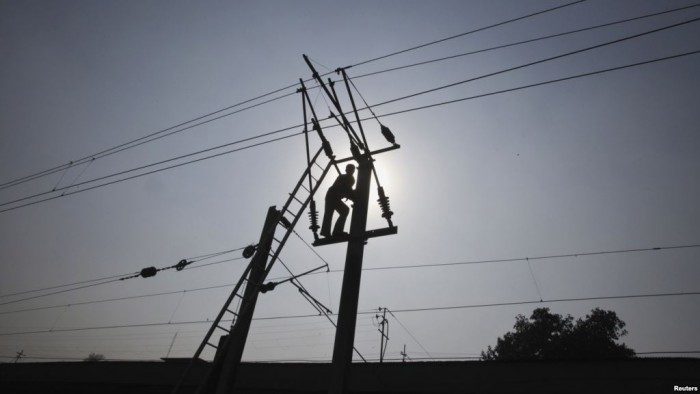


 A TOTAL of 227 companies bought tender documents for the supply of smart metering equipment estimated to cost around US$100 million, the Financial Gazette has learnt. The tender has been flouted by the Zimbabwe Electricity Transmission and Distribution Company (ZETDC), a unit of power utility ZESA Holdings. The number of companies that have bought the tender documents highlight the desperation of Zimbabwean businesses, as reports suggested that only a few of these had core businesses related to electricity supply and generation sector.
A TOTAL of 227 companies bought tender documents for the supply of smart metering equipment estimated to cost around US$100 million, the Financial Gazette has learnt. The tender has been flouted by the Zimbabwe Electricity Transmission and Distribution Company (ZETDC), a unit of power utility ZESA Holdings. The number of companies that have bought the tender documents highlight the desperation of Zimbabwean businesses, as reports suggested that only a few of these had core businesses related to electricity supply and generation sector.
Information obtained by the Financial Gazette indicates that the 227 companies bought the tender documents last week.
The tender closes on January 20, 2015. “Those who bought the tender documents include doctors, lawyers and traders, all trying to take a chance and be considered. The tender is very onerous and believe only 20 percent at best can meet the timeline and submit a bid,” said one expert.
Solahart, Finmark and Nyamezela are the major players sharing about 90 percent of the market share of smart meter supplies to ZETDC. Solahart commands 40 percent of that market share. The rest are small suppliers that have supplied less than 50 000 meters in total since the exercise started two years ago.
Former Energy and Power Development Minister, Dzikamai Mavhaire, was sacked from Cabinet following disclosures he and his deputy, Munacho Mutezo, had abused funds from ZESA, said the winning company would be announced early next year.
Only five companies will be shortlisted. ZETDC, a transmission and distribution subsidiary of ZESA, has so far installed about 530 000 prepaid meters and will be moving to the next phase of the project next year. Initial estimates indicated that ZETDC would require about US$100 million to install the smart meters. The company is doing away with the older version that has been installed in some households and businesses, which are said to be easy to temper with.
ZETDC said it would also invest significant money into installing Meter Data Management System, a central computer system that communicates with smart meters. Smart meters have brought relief to customers who had been complaining of inflated bills.
ZESA has for years been short-changing hard-pressed consumers by sending them estimated bills resulting in residents paying inflated bills despite intermittent power cuts that occasionally stretched for days or weeks in some areas. Consumers also complained ZESA bills were frequently late, making it difficult to budget for power consumption.
Expectations are that smart metering system would improve revenue generation amid reports that millions of dollars were being lost through theft and leakages on the prepaid meters. Energy experts interviewed this week said government should create stable companies in the sector that can support the projected growth in generation and expansion of services to complement ZETDC.
Although the pre-paid meters have proved popular with residents who can now budget how much they want to spend on electricity, there are fears installation of the meters does not address the problem of cost since ZESA still owes millions of US dollars in power imports, or the availability of power in the country. ZESA produces about 1 200MW of electricity against a national demand of 2 200MW.
newsdesk@fingaz.co.zw